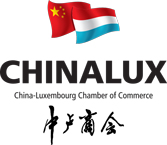In a CHINALUX webinar on June 4, 2020, Jeffrey Dentzer, Head of Corporate and Institutional Banking & Member of the Executive Committee at the BIL, introduced how banks are supporting local businesses in Luxembourg during the COVID-19 pandemic. For the past few months, the unprecedented scale of the global health crisis has provoked equally unprecedented responses. To stem the impact, governments across the globe have authorised stimulus packages of unprecedented scale.
According to Mr. Dentzer, Luxembourg’s policy makers were swift in their implementation of measures to bolster the economic impact of the crisis. Shortly after Prime Minister Xavier Bettel placed the country under lockdown on March 15, the government introduced four immediate economic recovery measures. Short-time unemployment due to force majeure and direct capital grant advance of up to EUR 500,000 were implemented to stave off large-scale lay offs and cover short-term operational costs of companies. Additionally, non-refundable financial aid of EUR 5,000 were made available for micro-businesses which had been forced to cease their operation under the lockdown. Lastly, the maximum co-founding rate for start-ups has been raised from 50% to 70% in order to support young, innovative enterprises. With the objective of minimising the impact of the economic outfall of the crisis, these government measures target small businesses and start-up enterprises in particular, as well as protecting the general labour force.
Luxembourg’s banks were quick to band together to support businesses and the Government’s economic stability plan. On March 20, seven leading banks in Luxembourg signed a Memorandum of Understanding to help alleviate difficulties businesses face during the pandemic. Led by Banque Internationale à Luxembourg, Bank of China, BNG Paribas, Banque de Luxembourg, ING, Banque Raiffeisen and Spuerkeess, two initiatives were put forward. The first is a Luxembourg-wide moratoria on existing credits and leasing contracts with the objective to reduce operating costs for a limited time, which were already introduced before the country-wide lockdown. Following the lockdown, the second initiative was put forward on April 22, and consists of a state-backed guarantee of 85% for new bank credit lines. This is to facilitate access to new cash for businesses to help them overcome the COVID-19 impact and to support them in their recovery phase. For these state-backed recovery loans, the government intends a time frame for up to a maximum of 6 years and has set aside a total amount of EUR 2.5 billion. In addition to the bank-led initiatives, Luxembourg’s banks have various joint initiatives with local partners. One of these is SNCI’s ‘Special Anti-Crisis Financing’ scheme for SMEs in Luxembourg, which constitutes a paradigm shift for SNCI to cover short-term responses, as the institution is nominally committed to long-term investments. Other initiatives with SNCI, the Mutualité de cautionnement and Mutualité des PME and ODL (Office du Ducroire) are guarantees for financing and credit lines, which intend to mitigate the crisis impact on SME’s and export-oriented companies. In cooperation with the European Investment Bank additional funds of EUR 25 billion have been reserved in support of existing credit guarantee measures.
Sector vulnerability extends particularly to those sectors forced to close and into lockdown, especially those with high fix costs and/or high immobilized assets. These include Chemistry, Cement, Automotive, HORECA, Event Management, Tourism and Recreational Services. On a closing note, Mr. Dentzer acknowledged the severity and global scale of the ongoing crisis, but also stressed that it has been met with an unprecedented response supported by all stakeholders.
For more details regarding the webinar content, please refer to the presentation slides.
FOSTERING THE RELATIONSHIP BETWEEN CHINA AND LUXEMBOURG
© 2019 CHINA-LUXEMBOURG CHAMBER OF COMMERCE.
